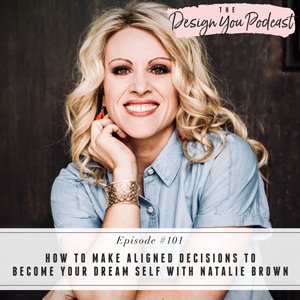
I’ve been bringing you an amazing lineup of genius women I’m currently doing master coach training with, and my guest this week is no exception. Natalie Brown is a certified life and weight coach and she runs her coaching practice where she helps successful women lose weight for the last time.
Natalie’s clients are successful women in all areas of their lives, at home and at work, but they’re just trying to figure out the final missing piece of their weight. She herself has lost 50 pounds by using the tools she teaches, and she helps her clients do the same; to find the confidence that can seem so out of reach for so many of us. We’re getting into some meaty stuff today! Natalie talks us through how to choose what you want the most over what you want in the moment, which is so crucial in becoming the person you want to be and having the results you most dream of in the long-term.
I resonate so much with Natalie’s message and work because we all fear failure and at some point or another hold ourselves back from evolving into our dream selves, whatever your main area of work currently is. We all give in and do the opposite of what we’ve decided prior, so this work might just be the key to the universe. Every single one of you needs to hear this conversation to see the growth that is available to you when you implement the process of making aligned decisions.
If you want to keep this conversation going, you have to join my free Design You Podcast community on Facebook. We have great conversations over there about the podcast episodes and our podcast guests are in there too! So head on over and I’ll see you there!





